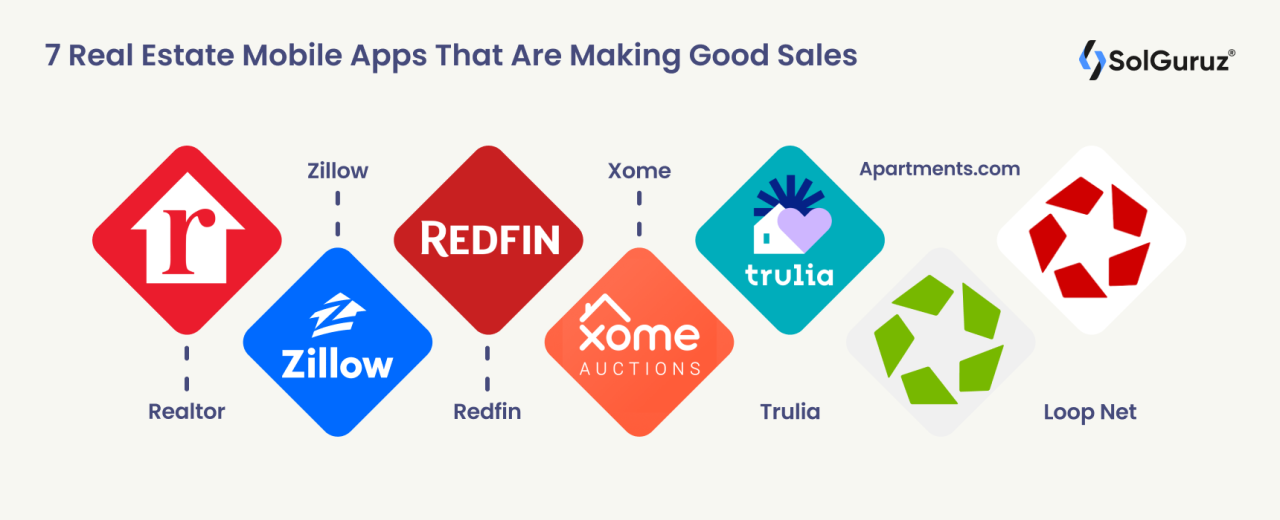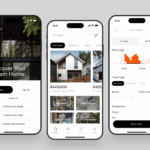Best real estate software for mobile home sales is revolutionizing the industry, providing agents and buyers with tools that streamline transactions and enhance communication. As the market for mobile homes continues to grow, having the right software can significantly impact sales efficiency and customer satisfaction. With features tailored specifically for mobile home transactions, this software not only simplifies the buying and selling processes but also helps real estate professionals stay ahead of industry trends.
In today’s competitive landscape, specialized software presents numerous advantages including user-friendly interfaces, mobile access, and seamless integration with other real estate tools. Understanding the unique needs of mobile home sales allows these software solutions to cater specifically to this niche market, ensuring that agents can manage their listings and client interactions effectively.
Overview of Mobile Home Sales Software
In the fast-paced world of real estate, mobile home sales software has emerged as a game changer. Designed specifically for the unique needs of mobile home transactions, this software streamlines processes, optimises efficiency, and enhances communication between buyers, sellers, and agents. By integrating various functions into a single platform, it caters to the distinct characteristics of mobile home sales, setting it apart from standard real estate software.Mobile home sales software serves multiple purposes, including inventory management, customer relationship management (CRM), and transaction facilitation.
Key features often include detailed listing management, automated documentation, and analytics tools that help sellers understand market trends. Specialized software for mobile homes not only simplifies the transaction process but also helps in maintaining compliance with industry regulations, ensuring that every sale goes off without a hitch.
Benefits of Using Specialized Software for Mobile Home Transactions
Utilising mobile home sales software brings forth a myriad of benefits that enhance the overall sales experience. This software empowers agents and sellers alike, providing tools that are tailored specifically for the mobile home market.
Efficiency in Transactions
The software automates many of the repetitive tasks involved in mobile home sales, such as generating contracts and managing listings. This automation significantly reduces the time and effort needed to close deals.
Improved Customer Relationships
With CRM features, agents can manage client interactions more effectively, ensuring that follow-ups and queries are handled promptly and professionally.
Market Insights
Comprehensive analytics tools provide valuable insights into market trends, enabling users to make data-driven decisions regarding pricing, marketing strategies, and inventory management.
Enhanced Communication
Built-in messaging features facilitate real-time communication between buyers and sellers, reducing delays and misunderstandings.
Regulatory Compliance
The software helps users stay compliant with local regulations and laws pertaining to mobile home sales, minimising legal risks.The mobile home sales market itself has been experiencing notable growth. Recent trends indicate a rising demand for affordable housing solutions, with mobile homes often being a more cost-effective option for many buyers. According to the latest reports, sales of mobile homes have seen a significant uptick, particularly in urban areas where housing prices continue to soar.
This shift in market dynamics underscores the importance of leveraging specialized software that can adapt to these evolving trends, ensuring that agents remain competitive and effective in their sales strategies.
Key Features of the Best Real Estate Software: Best Real Estate Software For Mobile Home Sales
When it comes to mobile home sales, the right software can make or break your game. We’re talking about tools that not only streamline the sales process but also enhance the user experience for both buyers and sellers. The best real estate software should embody a blend of crucial features that cater to the unique demands of mobile home transactions.To keep pace in the fast-moving world of real estate, mobile home sales software needs to offer features that empower agents and brokers.
A solid platform should facilitate everything from inventory management to customer relationship management (CRM), while also being mobile-friendly. Here’s what you should look out for:
Essential Features for Mobile Home Sales Software
The best software solutions are those that integrate essential features tailored specifically for mobile home sales. These features not only improve efficiency but also enhance the overall sales experience. Here are the key elements to consider:
- Inventory Management: Keeping track of available mobile homes is crucial. The software should allow for easy updates and categorisation of homes, making it simple to manage listings.
- CRM Integration: A robust CRM system helps manage relationships with clients, track communications, and follow up on leads efficiently.
- Mobile Accessibility: Given the nature of real estate sales, having a mobile-friendly interface is non-negotiable. Sales agents need to access data on-the-go, whether they’re meeting clients or showing homes.
- Automated Marketing Tools: Marketing features like email campaigns and social media integration can help agents reach potential buyers effectively.
- Analytics and Reporting: The ability to analyse sales data and generate reports aids in making informed business decisions and understanding market trends.
Popular software like Realtor.com and Salesforce are well-regarded for their strong mobile capabilities, allowing agents to manage listings and client interactions seamlessly from their smartphones. These platforms are designed to be intuitive, offering a user-friendly interface that makes navigation a breeze.
The Importance of User-Friendly Interfaces and Mobile Access
A user-friendly interface ensures that both agents and clients can navigate the software with ease. Complicated designs can lead to frustration and inefficiency. Thus, simplicity and clarity in the interface are paramount for a smooth user experience.
Moreover, mobile access is vital in today’s fast-paced market. Sales agents spend a significant amount of their time in the field, so having the ability to manage listings, contact clients, and access vital information from their mobile devices is critical. A smooth, intuitive mobile experience can be the difference between closing a deal or losing a prospect.
The best real estate software should be as portable as the homes being sold, ensuring agents can work efficiently wherever they are.
Comparison of Top Software Options

When it comes to choosing the right software for mobile home sales, the options out there can be a bit overwhelming. Each software boasts its unique features, pricing plans, and user experiences, making it essential to find the right fit for your business needs. Here’s a breakdown of the top software options to help you make a savvy choice.
Feature Comparison of Leading Software
To get a clearer picture, let’s set up a comparative table highlighting key features, pricing, and user ratings of the leading software in the game. This will help you weigh your options efficiently.
| Software | Key Features | Pricing | User Ratings |
|---|---|---|---|
| Dealership Pro | Inventory management, CRM, sales tracking, mobile access | £49/month | 4.5/5 |
| Mobile Home Manager | Lead generation, customer management, listing services | £39/month | 4.7/5 |
| RealtorMax | Customisable templates, marketing tools, analytics | £59/month | 4.3/5 |
| HomeSales Pro | Virtual tours, payment tracking, document storage | £45/month | 4.6/5 |
In this table, you can see the key features that each software offers, giving you a snapshot of what to expect. Pricing varies slightly, and user ratings indicate the experiences of real users, guiding you toward the best choice.
Pros and Cons of Each Software Option
Each software has its strengths and weaknesses, impacting how well they perform in the mobile home sales market. Below is an overview of the pros and cons associated with each software.Dealership Pro:
- Pros: Comprehensive inventory management and CRM, great for tracking sales.
- Cons: Can be overwhelming for new users due to its extensive features.
Mobile Home Manager:
- Pros: Affordable pricing and strong lead-generation capabilities.
- Cons: Lacks some advanced marketing tools that competitors offer.
RealtorMax:
- Pros: Highly customisable templates ideal for branding.
- Cons: Higher price point might deter smaller businesses.
HomeSales Pro:
- Pros: Unique features like virtual tours enhance the customer experience.
- Cons: Limited customer support options reported by some users.
Understanding these pros and cons will help you decide which software aligns best with your business goals.
User Testimonials and Experiences
Real user experiences can shed light on how these software solutions perform in the field. Here are some testimonials from users who have integrated these tools into their mobile home sales strategy.
“Dealership Pro has completely transformed how we manage our sales. The CRM is a lifesaver!” – Mark, Mobile Home Dealer
“Mobile Home Manager keeps things simple and effective. Love the lead generation features, but wish they had more marketing options!” – Sarah, Sales Agent
“With RealtorMax, our branding has taken off! The customisable templates are top-notch.” – James, Real Estate Entrepreneur
“HomeSales Pro’s virtual tours have given our listings an edge. However, getting support can be tricky.” – Emma, Property Manager
These testimonials reflect the real-world applications of each software, showcasing their strengths and areas for improvement, allowing you to make an informed decision ahead.
Integrations and Compatibility
In the fast-paced world of mobile home sales, having a real estate software that integrates seamlessly with other tools can be a game-changer. It’s all about enhancing efficiency, streamlining processes, and creating a smoother experience for agents and clients alike. The right integrations ensure that all your sales activities are connected, making it easier to manage leads, track interactions, and ultimately close deals.Integrating your mobile home sales software with other platforms is crucial.
It expands functionality and allows for better data management. Compatibility with various devices also plays a massive role in user experience, enabling sales agents to operate on-the-go without a hitch. Below are some common integrations that can enhance the capabilities of your software.
Common Integrations
The following integrations are vital for optimising your mobile home sales software:
- CRM Systems: Integrating with Customer Relationship Management tools like Salesforce or HubSpot helps keep track of leads, manage customer relationships, and maintain follow-ups efficiently.
- Marketing Tools: Pairing with platforms like Mailchimp or Constant Contact enhances your marketing efforts, allowing for targeted campaigns and automated email outreach.
- Accounting Software: Integrating with tools like QuickBooks or Xero streamlines financial management, making invoicing and bookkeeping a breeze.
- Document Management Systems: Tools like DocuSign or Dropbox simplify the handling of contracts and important documents, ensuring everything is stored securely and accessible anytime.
- Social Media Platforms: Connecting with social media channels allows for easy sharing of listings and promotions, expanding your reach and engagement.
Compatibility with mobile devices is increasingly essential in today’s market. As agents often work from various locations, mobile compatibility ensures that they can access their software from smartphones or tablets. This flexibility not only boosts productivity but also allows for real-time updates and communications, keeping everyone in the loop no matter where they are.
“Integration isn’t just about connecting tools; it’s about creating a cohesive ecosystem that enhances every aspect of mobile home sales.”
Pricing Models of Real Estate Software
In the realm of real estate software, especially for mobile home sales, understanding the pricing models is crucial. The cost structures can significantly influence a small business’s budget and operational efficiency. Whether you’re a seasoned pro or just starting out, knowing your options helps you make informed decisions that align with your financial goals.Different software solutions come with their own pricing structures, which typically fall into two main categories: subscription models and one-time fees.
Subscription models often provide ongoing updates and support, making them a solid choice for businesses looking for flexibility. One-time fees, on the other hand, might seem appealing for their upfront cost but could lead to higher expenses in the long run due to lack of updates and support.
Subscription Models Versus One-Time Fees
When considering real estate software for mobile home sales, it’s vital to weigh the pros and cons of different pricing models:
- Subscription Models: Usually charged monthly or annually, these models provide continual access to the software, ensuring that users always have the latest features and security updates. For instance, a well-known mobile home sales software might charge around £50 per month, which includes customer support and regular feature enhancements.
- One-Time Fees: Users pay a fixed amount upfront, often ranging from £500 to £2000, depending on the software’s capabilities. However, this might mean additional costs for updates and support down the line, leading to a potential mismatch in value over time.
The choice between these models should be based on the specific needs of your business. If you’re a small real estate company focused on mobile homes, opting for a subscription model often results in better long-term savings and adaptability.
Cost-Effective Solutions for Small Real Estate Businesses
For small businesses, cost-effectiveness is a key consideration when selecting software. Here are some examples of affordable solutions that cater specifically to the mobile home market:
- AppFolio: Starting at around £1.25 per unit per month, this platform offers comprehensive property management features suited for mobile home parks.
- TenantCloud: With a free tier for basic services and paid plans starting from £12 per month, TenantCloud provides an excellent entry-level solution that scales as your business grows.
- Buildium: This software offers pricing tiers starting at £15 per month for essential features, making it an affordable option for small companies focusing on efficient mobile home sales management.
These options ensure that small businesses can leverage powerful tools without straining their budgets.
Value of Investing in Premium Software
Investing in premium software can provide substantial benefits that free options often lack. While free software may seem like a good deal, they frequently come with limitations that can hinder your business growth. Premium software solutions typically offer:
- Advanced Features: Enhanced functionalities, such as advanced reporting, marketing tools, and mobile access, enable more efficient management of sales and customer relationships.
- Reliable Support: Premium software usually comes with dedicated customer support, ensuring that issues are resolved quickly, which is crucial when dealing with sales transactions.
- Regular Updates: Continuous improvements and updates keep your software aligned with industry standards and regulations, helping you stay competitive.
Investing in software is not just about the initial cost; it’s about the long-term value it brings to your business.
By weighing the costs against the potential returns, investing in premium software can significantly enhance productivity and profitability in the mobile home sales arena.
User Support and Resources
In the tight-knit world of mobile home sales, having solid support from your software provider can make all the difference. The best real estate software doesn’t just give you tools; it backs you up with resources that help you maximise your potential. Quality customer support and educational materials can transform a steep learning curve into a smooth ride, ensuring you’re always on top of your game.
Leading real estate software providers understand that users need more than just a great product. They often offer various customer support channels to ensure you get the help you need when you need it. This support comes in several forms:
Types of Customer Support
There’s a range of options available for users, ensuring help is just a click or call away. The variety of support options enhances user experience, making software navigation smoother and less frustrating. Here’s what you can typically expect:
- Live Chat Support: Instant messaging with support reps for quick queries.
- Email Support: Submitting tickets for less urgent issues, usually with a response time within 24 hours.
- Phone Support: Speaking directly with a representative to resolve complex issues on the spot.
- Community Forums: Engaging with other users to share tips and solutions.
- Knowledge Bases: Comprehensive articles and FAQs for troubleshooting and guidance.
Learning Resources
Apart from direct support, accessing educational materials is crucial for mastering software features. Many top-tier software providers offer a plethora of resources that can help users become proficient in navigating their platforms. These resources not only empower users but also foster a community of informed individuals ready to share their insights.
- Video Tutorials: Step-by-step guides to help you through specific functions and features.
- Webinars: Live sessions where experts explain best practices and answer questions.
- User Manuals: Detailed guides outlining software functionalities and troubleshooting steps.
- Blogs: Articles discussing industry trends, tips, and software updates.
- Case Studies: Real-life examples of how other users effectively utilise the software to improve their business.
Importance of Ongoing Training and Support
Continual training and support are paramount for realising the full potential of your chosen software. Even the best tools can become daunting without the right knowledge and guidance. Regular updates and training sessions ensure that users stay informed about new features and improvements, keeping them ahead of the curve in a fast-paced environment.
“Users who regularly engage with training resources are more likely to fully leverage the software’s capabilities.”
With a solid support system and ample learning resources at your disposal, utilising real estate software for mobile home sales can transform from a mere task into a powerful ally in your selling journey. Stay equipped, stay informed, and let the software work for you.
Future Trends in Real Estate Software for Mobile Homes
The world of real estate software is ever-evolving, and the mobile home sales sector is no exception. As technology strides forward, we’re about to see some serious shifts in how these platforms operate, making life easier for investors, buyers, and sellers alike. Let’s break down what’s coming up on the horizon for this niche market.
Emerging Technologies in Mobile Home Sales Software
The integration of cutting-edge technologies is set to revolutionise the landscape of mobile home sales. This includes advancements like virtual reality (VR) and augmented reality (AR), which will allow potential buyers to take immersive virtual tours of properties without even leaving their sofa. Imagine scrolling through an app and stepping into a virtual space, visualising how the layout suits your lifestyle, all from your mobile device.Another exciting development is the use of blockchain technology.
This could simplify transactions, making them more secure by providing a transparent ledger of all ownership records. By reducing fraud and ensuring a clear chain of title, blockchain has the potential to streamline processes that have traditionally been bogged down by paperwork.
Artificial Intelligence and Machine Learning Enhancements, Best real estate software for mobile home sales
Artificial Intelligence (AI) and machine learning are game-changers in user experience for mobile home sales software. These technologies can analyse user behaviour and preferences, offering personalised recommendations for listings based on previous searches. Picture a platform that learns your taste and updates you with homes that tick all your boxes—much like a savvy mate who knows your style.Additionally, AI can optimise pricing strategies by analysing market trends and competitor pricing in real-time.
This means sellers can set their prices more accurately to attract buyers or even adjust them dynamically based on demand. Such tools not only enhance the user experience but also empower users with data-driven insights that help in making informed decisions.
Predictions for the Mobile Real Estate Software Market
Looking ahead, the mobile real estate software market is ripe for substantial growth, with an expected increase in mobile-first strategies. As smartphones become more powerful, more users will rely on mobile platforms for their property transactions. This shift necessitates a focus on user-friendly design and functionality, ensuring that apps are accessible and efficient for all users.Moreover, we can anticipate an increase in collaborative tools that allow real estate professionals to interact seamlessly with clients within the software.
Features like integrated communication channels, document sharing, and live video consultations will become standard, enabling more efficient deals and faster closing processes.The real estate landscape is on the brink of transformation, ushering in not just efficiency but also a much more engaging experience for everyone involved. As these technologies mature, mobile home sales software will not only keep pace but lead the charge into a new era of real estate transactions.
Outcome Summary
In conclusion, selecting the best real estate software for mobile home sales can transform how agents operate, ultimately leading to increased sales and improved customer experiences. As we look to the future, advancements in technology such as AI and machine learning promise to further enhance these tools, making them indispensable for real estate professionals. By investing in the right software, agents can not only keep pace with the evolving market but also position themselves as leaders in the mobile home sales sector.




